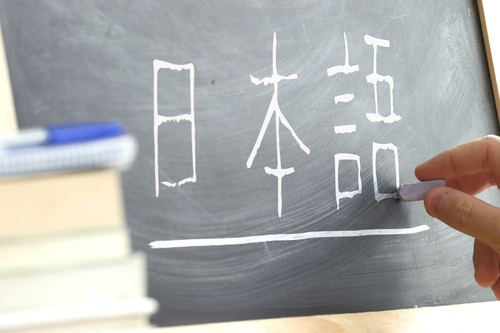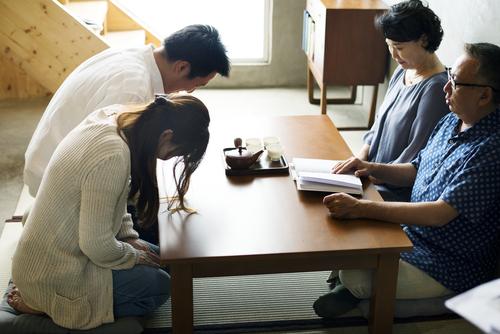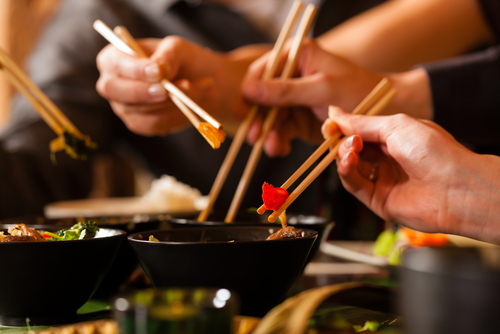Next in our series of learning Japanese culture, we talk about how Japanese show respect. Read on to find out how to show respect to the Japanese folk.
Japan is a society that is known for its traditions and culture. In Japan, a lot of priority is given to loyalty, politeness, personal responsibility, and working for societal good. When you are walking on the streets of Japan, you will be mesmerized by all the colors, fashion, and advanced technology that is a part of this nation.
However, all of these things do not mean that the country does not follow a good discipline and respect system. In fact, you will be surprised to see that the country is one of the most polite nations in the world.
If you are in Japan or are planning a trip to this wonderful nation, knowing how the Japanese show respect can really help you. You need to know some basic customs and etiquette that will help you survive your time in Japan. Are you interested to know? Continue reading to find out how you can show you respect and politeness when in Japan!
How Japanese Show Respect
Japanese Youth Are Expected To Stand and Offer Their Seats When An Elder Walks In As A Sign Of Respect
Japanese people show their elders respect in a variety of ways, some of which may surprise those unfamiliar with the culture.
An elderly person often takes precedence when entering a room or standing at a train station. A younger person may offer to help an elder person with a seat or carrying bags, for instance. In general, youth are expected to be courteous and pay attention to the needs of the senior.
Gift-giving is also an important way in which Japanese respect their elders.
For instance, children and grandchildren might give small tokens of appreciation in the form of traditional foods or other goods. Receiving and giving small gifts is a sign of respect, as well as a way of strengthening familial relationships.
In general, Japanese tend to be very polite and humble when talking with older people. This is because age is seen as a sign of experience and wisdom.
Therefore, it’s considered disrespectful for a younger person to be too outspoken or critical. It’s more appropriate to use more polite language and phrasing and greater respect should be given to those with more proverbial life experience.
Physical contact can be a tricky area, however.
So, it’s important to use caution when interacting with elders (as it’s also true for any interaction between strangers). Generally, it’s seen as inappropriate for a younger person to hug an elder.
A casual touch or pat on the shoulder may be acceptable, depending on the circumstances.
Another form of respect to elders is to listen to their advice or stories. A younger person may show respect by stopping to listen to an elder’s stories or life experiences.
Showing patience and appreciation with elderly people can be one of the most important ways to show respect.
All in all, Japanese culture is founded upon many traditions and rules of etiquette, and an integral part of that is the way they show respect to others – especially their elders.
By displaying mutual respect, understanding each other’s boundaries, and paying attention to appropriate behavior, people of all ages can strive to co-exist peacefully and with dignity in a culturally diverse society.
Learn the language
Okay, so I am not asking you to be a fluent speaker of the Japanese language, but knowing a little of it can really help you when you are in Japan. You must try to use the little knowledge of the language that you have.

There is absolutely no reason to be embarrassed by it. The Japanese are quite understanding and considerate people, and they know that learning their language is difficult for foreigners. It is because of this reason that they will tolerate your mistake. In fact, they will actually like you for trying to speak in their tongue.
- Related: How Japanese Call Their Parents
- Related: How Japanese Write Dates
- Related: How Japanese Celebrate Christmas
Bowing to Greet
Bowing is one of the most important ways of showing respect in Japan. If you are a man, you should bow with your hands on your sides. For women, you should bow with your hands together in the front.

When bowing, your hands should look like they are settled on your lap. You also need to take care of the degree of bowing. This usually depends on your position in society relative to the receiver of the bow. It also depends on the occasion.
The rules for this are quite complex, and as a foreigner, you need not worry about it. You can simply go for a ‘token bow’ or a nod. Many Japanese will also be okay with a handshake instead.
Related: How Japanese Names Work
Present And Receive Using Both Hands

If you are handing something to someone, it is considered polite to present it using both your hands. This is especially true for business cards, credit cards, and money. However, you will notice that most businesses have a tray where you can put your payments instead of handling them directly to the cashier.
Drinking Together
When you are drinking sake or beer in a group, there are so many elaborate rules that you need to take care of. However, do not be intimidated by them. Simply follow these rules and you will have an enjoyable evening.
Firstly, never pour your own drink. As is customary in Japan, you need to serve drinks to others at the table, and they will do the same for you. Do not take even a little sip until you see that everyone’s glasses are full.

Also, before drinking something like sake, it is always required for you to raise your glass to cheers (Kanpai) and then take the first sip together with everyone. Do not drink before everyone else; this is considered to be rude and selfish.
Related: How Japanese Discipline Children
Using Chopsticks
The only way to eat your meals in Japan is by using chopsticks. Never ask for silverware, no matter how clumsy you are with your chopsticks. Even if you are having great difficulties in picking up the grains of rice, it is still advisable to carry on with the chopsticks.

Even with using chopsticks, there are tons of table manners and etiquette, but following a few will make sure that you are not being disrespectful. Here are the basics that you need to be mindful about -
- Never take food from a shared plate using the ends of your chopsticks you have eaten from. Turn them upside down if you have to take the food.
- Never point at anyone or anything with your chopsticks. This is considered to be highly offensive.
- Never leave your chopsticks standing upright into rice because this is considered to be a funeral rite.
So basically, you need to avoid using your chopsticks like they are a toy.
Related: What Japanese Say Before Eating
The Shoe Rule
In Japan, it is considered respectful and polite to remove your shoes before entering a house, restaurant, or any place of business.
How to know if you need to remove your shoes or not? You almost always have to do this, but your cue could be the rows of shoes lined up outside the place. Instead of your shoes, you will be given slippers to use.
You can use the slippers at all times; the only times you need to remove them are when you are entering a room with a tatami floor or when you are going to a restroom. But fret not! You do not need to enter the restroom in your socks.
There are special slippers kept outside the restroom for you to wear. When you come out of the restroom, do not forget to switch back to your indoor slippers.
Gift-giving
Giving out gifts is highly common in Japan. It is a very nice gesture to give out gifts or souvenirs to the Japanese. They will love it if the gift you have given is something that is unique to your country or something that represents your country.

They will feel a lot of gratitude for receiving such a gift. In Japan, they also put a lot of importance on gifts that are consumable. This is because of the smaller size of Japanese homes.
So, a good gift would be something like soap, candies, alcohol, and stationery. ‘Re-gifting’ is also quite a common practice. Also, make sure that when you are opening a wrapped present, do not damage or tear the wrapping paper.
If you're gifting someone older than you then gifting shoes or socks is considered impolite as it implies 'to stamp on' that person.
Name Structure
The Japanese structure their names in a reverse fashion than how it is done in the west. In Japan, the family name is followed by the first name, not vice versa.
For instance, in Japan, John Green would be Green John. If you are addressing somebody in Japan, it is considered respectful to address them by their family name. The only exceptions to this rule are close friends and children.
You also always need to attach an appropriate title to the name. The title that is the most neutral and is safe to use would be ‘san’.
So, going by the earlier example, if you want to address somebody in the most polite and respectful manner, it would be by saying ‘Hello, Green-san’.
Also, when doing this, do not forget to bow down as we talked about earlier. If in return for this, a handshake is offered to you, this means that they are showing respect to your western customs.
Avoid Four
The number ‘four’ is considered to be quite unlucky and is said to bring bad luck. It is believed so because the number four is pronounced in the same way as death - shi.
It is because of this that the Japanese tend to avoid the number four the same way number thirteen is avoided in western countries. You will see that hospitals and hotels skip floors and rooms that would have the number four.
You will also never see anything in packs of four in Japan. When you are in Japan, make sure you are mindful of this superstition and respect it.
Visiting Shrine or Temple
When you are visiting a Shinto shrine or a Buddhist temple, be mindful of the cleansing procedure at the chozuya before you enter the Holy place. You first need to fill the dippers with water and then proceed at cleaning your hands.
You first need to rinse your left hand and then your right hand. Then, fill your left hand with water, with which you will need to rinse your mouth.
Never touch the dipper directly with your mouth. After you have used your left hand to rinse your mouth, rinse that hand again with the remaining water in the dipper.
Trash and Recycling
You will not find many trash cans in public, and so, you may have to carry around your trash before you find the proper way of disposing of it.
When you finally do come across a trash can, you will notice that it is never alone. They are usually in groups of four to six. It is because recycling is a huge deal in Japan. The best places where you can find these cans are the transit stations and convenience stores.
These cans are labeled with a recycling symbol in Japanese. The recycling bins that you will see include -
- Paper (kami)
- PET/Plastic (pettoor pura)
- Bottles and cans (bin, kan)
- Burnable trash (moeru gomi)
- Non-burnable trash (moenai gomi)
Showing respect in Japan!
These were some of the basic etiquette rules that you need to follow in order to show your respect and politeness when in Japan. When you visit Japan, these basics will definitely help you.
Also Read




